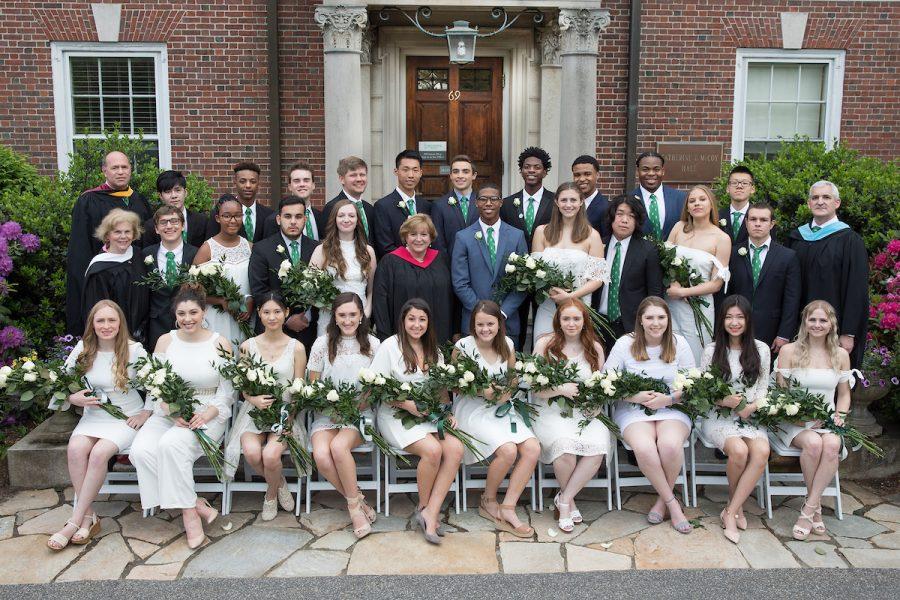Op-Ed: It’s Time to Rethink Graduating in White
©David M. Barron / Oxygen Group
The Class of 2017. Photo by David Barron.
May 18, 2018
As the end of the academic year quickly approaches, some students and faculty are questioning the strict dress code for graduation.
Since before the merger of the Brimmer School and the May School in 1939, female students have been required to wear white dresses to graduation.
The tradition was instituted long, long ago, and it’s time to examine the relevance of the dress-code. White is traditionally a symbol of virginity, innocence, and goodness. These traits are antiquated in a time when both women and men are defying gender stereotypes.
The color white also symbolizes marriage, implying that female graduates are ready to find a husband. Purity should not be idealized as an essential feminine quality. Instead, the School should encourage individuality and recognize that femininity can be expressed in many different ways.
Moreover, the dress code does not address the concerns of students who do not identify as a woman or a man. Some do not want to express themselves in a purely feminine or a purely masculine way.
White is traditionally a symbol of purity, virginity, innocence, and goodness. These traits are antiquated in a time when both women and men are defying gender stereotypes.
If everyone were to graduate in a cap and gown, students would feel more comfortable, while the appearance of class unity would remain.
Alternatively, the School could permit regular dress day clothes, allowing students to choose any dress, skirt, shirt, or pants that they wish to wear.
Breaking an established tradition is never easy, but as gender roles and attributes are redefined, the School needs to rethink its policy. I’m not the only person who thinks so. Even adults here agree.
“I think we are long past the date when this is relevant. We should allow kids to express who they are rather than who we think they should be,” said Dean of Students Paul Murray. “There’s certainly a place for tradition in any society, but I think we need to ask ourselves why we continue to uphold each tradition.”
English teacher Kenley Smith shares similar views.
“I think that the tradition is aesthetically pleasing, but I do have questions about girls dressing in all white the same way that girls traditionally dress in all white for their wedding to signify moral and physical purity,” she said.
To be fair, other private schools in the area require white dresses for graduation, including Dana Hall, Nobles & Greenough, Dexter Southfield, Winsor, and Buckingham Browne and Nichols school.
Meanwhile, schools like Rivers, Boston Trinity Academy, Montrose, and Landmark provide caps and gowns for graduation.























































